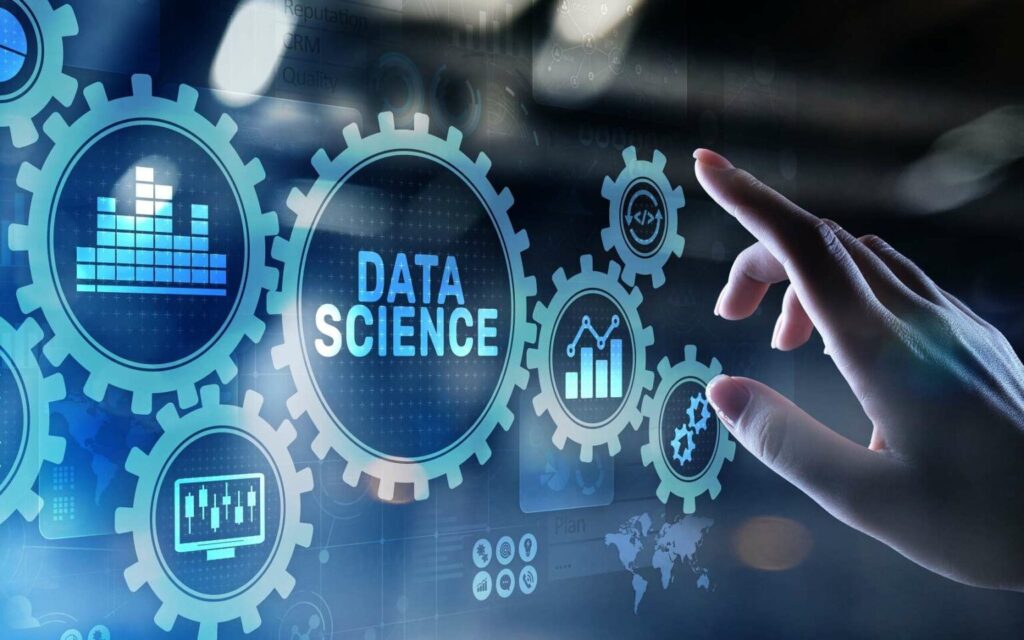With Reference Tools.
- AutoML (Automated Machine Learning)
- Federated Learning
- Graph Analytics
- Explainable AI (XAI)
- Quantum Computing for Data Science
- Natural Language Processing (NLP) Advancements
- Edge AI
- DataOps and MLOps
- Synthetic Data Generation
- Augmented Analytics
- TinyML
- Privacy-Preserving Machine Learning
1. AutoML (Automated Machine Learning)
- Google AutoML: A suite of machine learning products that enables developers to train high-quality models specific to their needs with minimal ML expertise.
- H2O.ai’s Driverless AI: Provides automatic machine learning with interpretability and explainability features.
- DataRobot: An enterprise AI platform that automates the end-to-end process for building, deploying, and maintaining AI at scale.
2. Federated Learning
- TensorFlow Federated: An open-source framework for machine learning and other computations on decentralized data.
- PySyft: A Python library for secure and private machine learning, including federated learning.
- Federated AI Technology Enabler (FATE): An open-source project to provide a secure computing framework.
3. Graph Analytics
- Neo4j: A leading graph database management system that provides advanced graph analytics and visualization.
- Amazon Neptune: A fully managed graph database service.
- Apache TinkerPop: A graph computing framework for both graph databases and graph analytic systems.
4. Explainable AI (XAI)
- SHAP (SHapley Additive exPlanations): A game-theoretic approach to explain the output of machine learning models.
- LIME (Local Interpretable Model-agnostic Explanations): Provides local model interpretability.
- InterpretML: An open-source library for training interpretable models and explaining blackbox systems.
5. Quantum Computing for Data Science
- IBM Quantum: Provides quantum computing services and tools like Qiskit.
- Google Quantum AI: Advances the state of the art in quantum computing and builds quantum processors and algorithms.
- Microsoft Quantum Development Kit: Includes Q#, a programming language for expressing quantum algorithms.
6. Natural Language Processing (NLP) Advancements
- Hugging Face Transformers: A library providing thousands of pre-trained models to perform tasks on texts such as classification, information extraction, question answering, summarization, and translation.
- spaCy: An open-source library for advanced NLP in Python.
- NLTK (Natural Language Toolkit): A suite of libraries and programs for symbolic and statistical natural language processing.
7. Edge AI
- TensorFlow Lite: A set of tools to help you run machine learning models on mobile and IoT devices.
- ONNX Runtime: An open-source engine that provides a framework to optimize and run machine learning models on various hardware platforms.
- AWS IoT Greengrass: Allows you to build, deploy, and manage machine learning models on edge devices.
8. DataOps and MLOps
- Kubeflow: An open-source platform for machine learning operations that deploys and manages ML on Kubernetes.
- MLflow: An open-source platform to manage the ML lifecycle, including experimentation, reproducibility, and deployment.
- Tecton: An enterprise feature store for machine learning that helps build, deploy, and manage feature pipelines.
9. Synthetic Data Generation
- Gretel.ai: Provides APIs to generate and use synthetic data safely and securely.
- Mostly AI: Synthetic data platform that simulates realistic and privacy-preserving synthetic data.
- Synthetaic: A synthetic data generation platform to train high-performance AI models.
10. Augmented Analytics
- Tableau: A powerful data visualization tool that includes augmented analytics features like Explain Data.
- Power BI: Microsoft’s business analytics service with AI and augmented analytics capabilities.
- Qlik: Provides data analytics and visualization solutions with embedded AI and augmented analytics features.
11. TinyML
- TensorFlow Lite for Microcontrollers: A version of TensorFlow Lite designed to run machine learning models on microcontrollers and other resource-constrained devices.
- Edge Impulse: A development platform for machine learning on edge devices.
- uTensor: A micro machine learning inference library built on top of TensorFlow.
12. Privacy-Preserving Machine Learning
- PySyft: Enables secure and private machine learning with techniques like federated learning, differential privacy, and multi-party computation.
- TensorFlow Privacy: A library that includes implementations of TensorFlow optimizers for training machine learning models with differential privacy.
- IBM Fully Homomorphic Encryption (FHE) Toolkit: Provides tools to build privacy-preserving applications using homomorphic encryption.
These tools and technologies are at the forefront of data science innovation, helping to advance capabilities in automation, security, scalability, and interpretability.
For More: Artificial Intelligence (AI)
Course: Data Science
